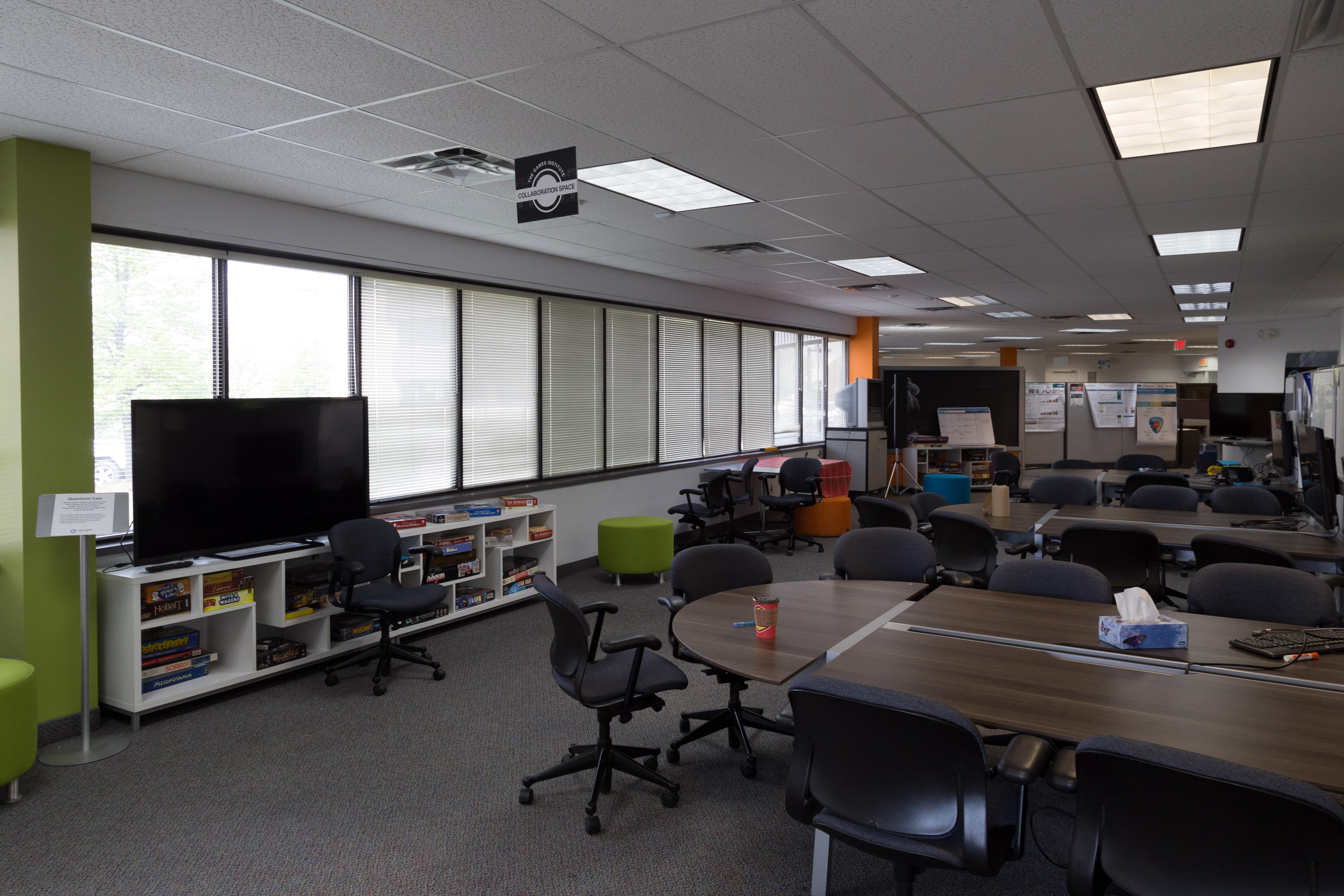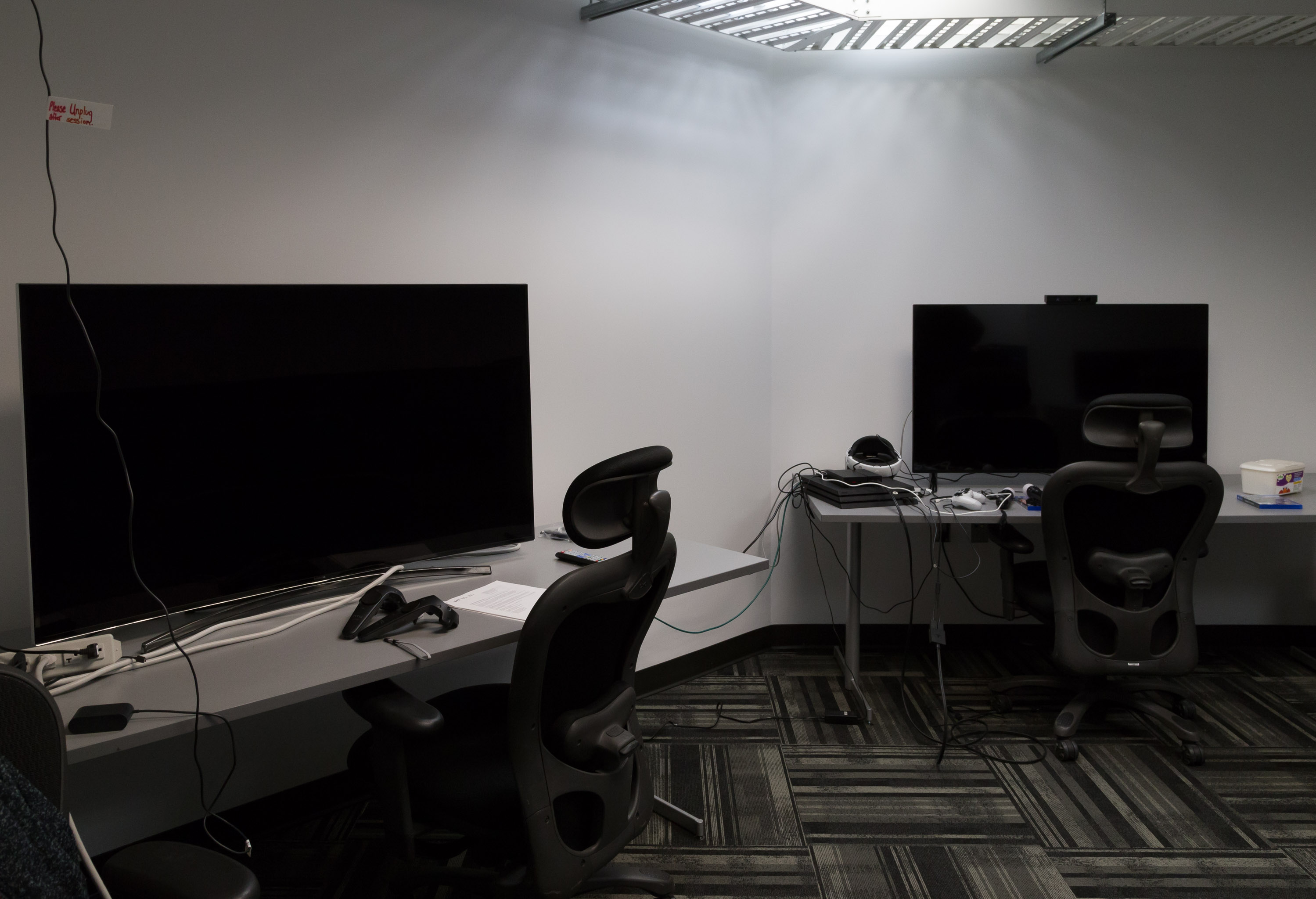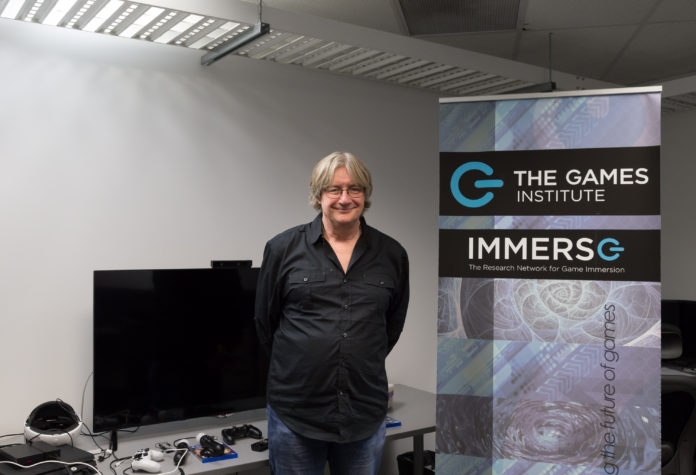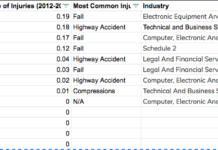When it comes to virtual reality, most associate it with the future of video games. However, Dr. Neil Randall will tell you a very different story of virtual reality’s potential uses and endless possibilities.
Having received a the Canadian Foundation for Innovation (CFI) grant with co-recipient Dr. Ashley Mehlenbacher, the two plan to create a VR laboratory within the Games Institute in EC1. “We’re hoping to get everything in place by this time next year,” said Dr. Randall. Although he is optimistic, and says there is a chance everything will be in place by January.
However, as amazing as the new lab sounds, it will not be all fun and games. The lab environment will mostly be for faculty and graduate student research. More so, it’s designed to “support research by researchers who applied for it, and others who will use it for research purposes,” explained Dr. Randall.
He also clarified that although the lab will be within the Games Institute, the research they are trying to promote doesn’t necessarily correlate with video games. “There is a strong relationship between games and VR (…) but also because we really deal with technologies and experiences that are about emersion and strong emersion and engagement.”

The sky appears to be the limit in the kinds of research that can be explored in the lab. They are open minded to anything interactive, immersive, and that deals with strong user engagement.
Randall gave an example of a faculty member at UOIT, Dr. Bill Kapralos, who is using VR for surgical training. There is also huge interest in potentially training firefighters through the VR setting. Essentially, what they are truly interested in researching is how stories are told through VR.
They are even working with a local filmmaker, who is helping them answer these questions of “storytelling”, cinema’s interest in VR, and exploring how the viewer is positioned.
“How to produce, how to tell stories, how to tell narrative experiences in many fields including medical/health, educational, and entertainment,” described Randall. “There’s lot’s of opportunity here.”
 Despite a graduate to post-doctoral preference, there is potential for undergrad involvement. Dr. Randall is very optimistic about eventually having co-ops at the lab, allowing 4th year undergrad groups to complete final thesis projects, or have specific programs and courses within the lab. However, he was quick to say it “all depends on capacity,” and getting procedures in place.
Despite a graduate to post-doctoral preference, there is potential for undergrad involvement. Dr. Randall is very optimistic about eventually having co-ops at the lab, allowing 4th year undergrad groups to complete final thesis projects, or have specific programs and courses within the lab. However, he was quick to say it “all depends on capacity,” and getting procedures in place.
Presently, Dr. Randall is starting a VR Development Group, an offshoot of the Game Development Club, in which students will explore ways of getting VR made on campus.
“There’s potential here from arts to maths and computer science, to engineering, to health science. We’re looking at all the various possibilities.”































